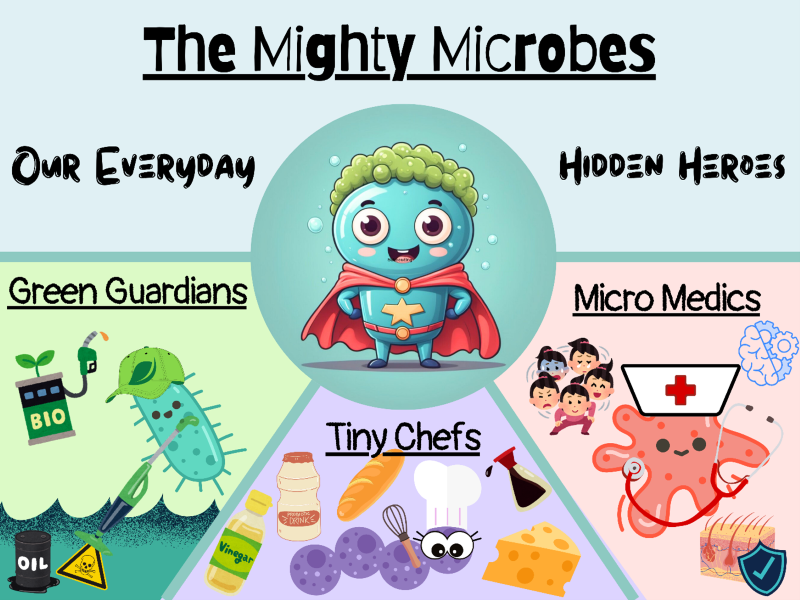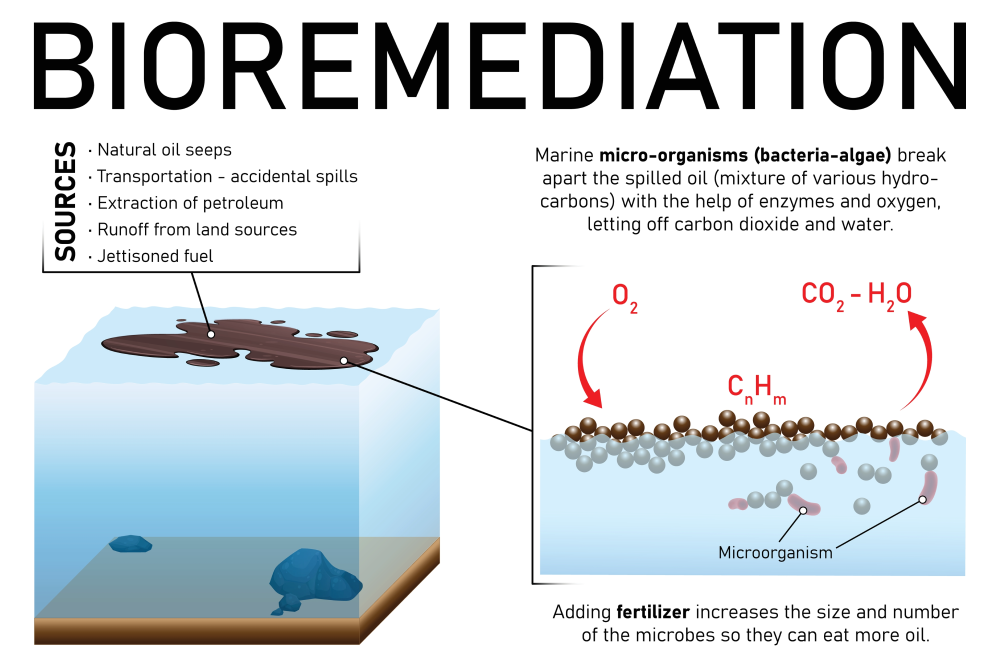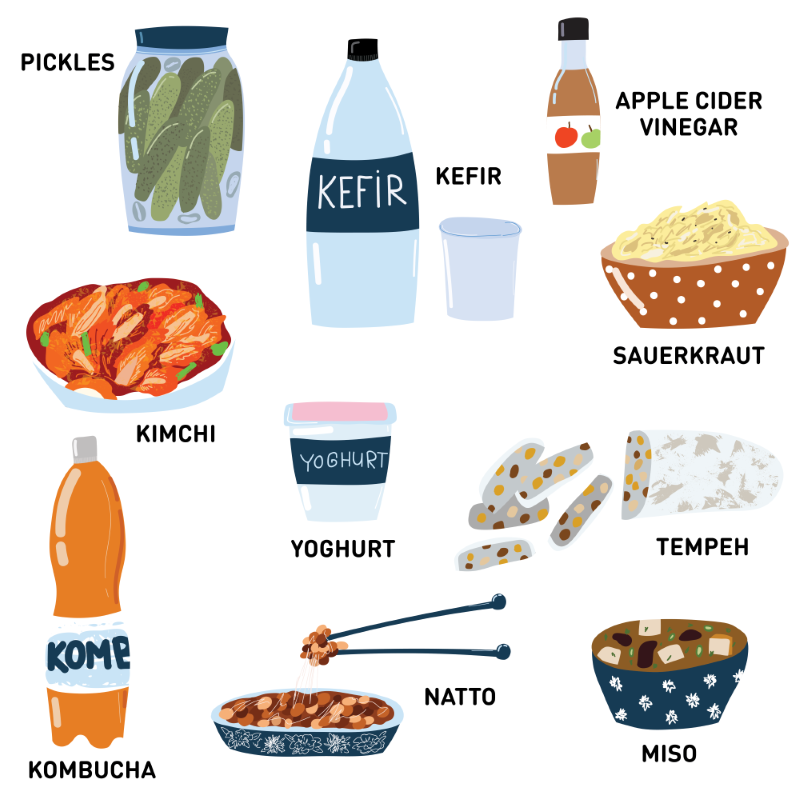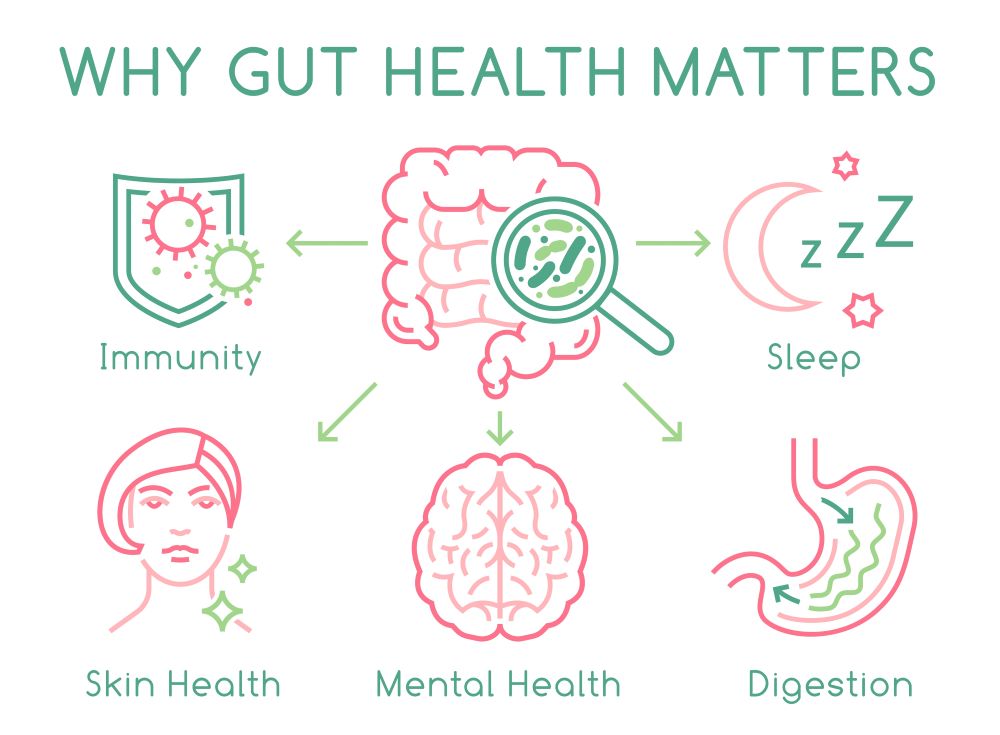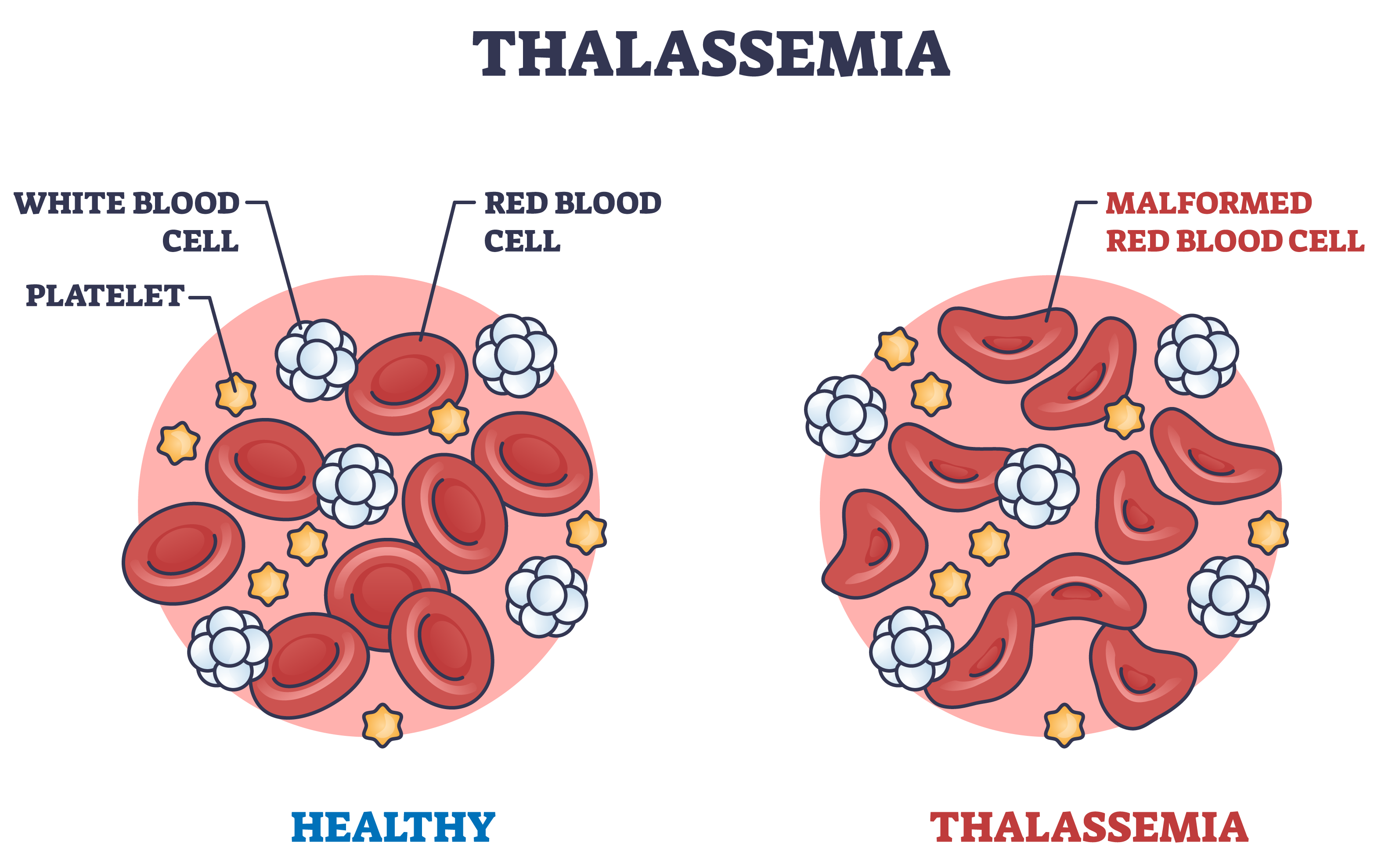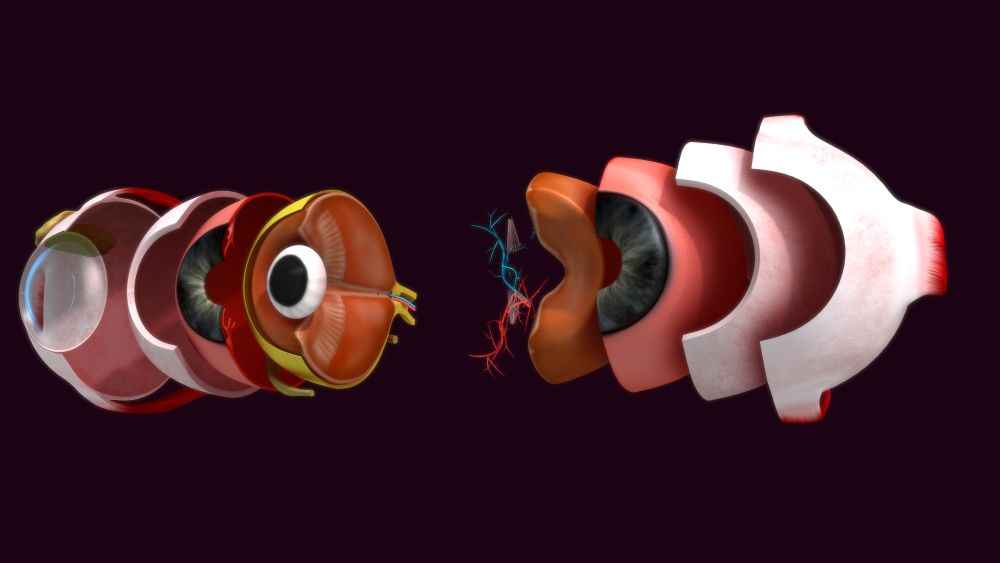Remember those evil cartoon creatures on posters in the doctor’s office? The chaos caused by the COVID-19 virus in the last few years has probably strengthened negative impressions on the microbial world. Microbes, or microorganisms, include bacteria, fungi, viruses and archaea, among many others. But they’re better than most people realise! Let’s explore the superpowers of the unseen microbial heroes in our environment, food, and health.
Green Guardians
Microorganisms can heal and reverse the damage done to the environment. Some bacteria can be found in extreme environments like the salty Mediterranean Sea, hot springs, acidic volcanic vents and even in a river poisoned with arsenic in the Atacama Desert. These are called extremophiles and have unique by-products and effects. For example, some species of bacteria can eat arsenic and oil spills from contaminated waters and can, therefore, be used for environmental restoration, also termed bioremediation.
The most helpful little hero to scientists is the bacteria Escherichia coli or E. coli. They grow quickly, can be genetically edited easily, and swiftly manufacture many commercial products. In response to globally ‘expensive petroleum’, biofuels can be obtained from microbial digestion of plant waste as a sustainable source. Genetically editing E. coli with genes from other microbes, like Zymomonas mobilis and Clostridium spp., maximises biofuel production and reduces waste products. Genetically edited E. coli can also use CO2 as an alternative food source to grow, reducing greenhouse gas levels and improving Earth’s global warming.
Tiny Chefs
Could you imagine burgers or pasta without any cheese? Or dim sum and sushi without their soy sauce partner? Without these hardworking microbes, we wouldn’t have many culinary necessities, including kimchi, tempeh, sauerkraut, yoghurt, miso, vinegar, and not to forget our favourite baked goods like pastries and bread. Bacteria like many Lactobacillus spp. and Enterobacter spp. are used in cheese and bread making, Bifidobacterium animalis in probiotic milk drinks, Bacillus subtilis for fermenting soybeans, and Acetobacter spp. for vinegar.
But bacterial species aren’t the only culinary experts. Fungi like Rhizopus oligosporus or Rhizopus oryzae are used as the starter culture in tempeh. Saccharomyces cerevisiae, also known as Brewer’s yeast, alongside other yeasts like Candida spp., are used for bread and probiotics, and Aspergillus oryzae or Aspergillus sojae, otherwise called koji moulds, are the main microbes used to ferment soybeans to create soy sauce. So, remember to compliment our little chefs the next time you consume your favourite foods and drinks.
Micro Medics
We possess loyal soldiers that live on our skin surface, protecting it from infectious invaders like Methicillin-resistant Staphylococcus aureus (MRSA), Streptococcus pneumoniae, and Streptococcus pyogenes. Soldiers like Gram-positive bacteria, namely Cutibacterium acnes, Staphylococci spp. and Corynebacteria, defend against pathogens by turning our skin acidic, stopping colonisation and virulence by disrupting communication of the invaders. They also produce antibiotics, bacteriocins, enzymes, and smaller proteins with antimicrobial effects.
Do you enjoy probiotic drinks? Probiotics boost the health of our gut microbes, but why is maintaining gut microbe health so important? Gut microbes are responsible for producing essential metabolites vitamins, the signalling and functioning of our nervous system with our immune and endocrine systems, and regulation of neurotransmitters for the Central Nervous System (CNS). Our gut bacteria also regulate and produce serotonin and dopamine, our happy hormones that cater to our happy moods, cognition, movement, memory, growth and sleep.
Our mental health depends on the balance of species within these microbial communities inside our guts. Previous research has shown that changes in mood, such as depression and anxiety, brain activity, ulcerative colitis and mental disorders like schizophrenia, bipolar disorder, ADHD and autism may have occurred because of increased or decreased levels of specific bacterial species that were absent or present in the patient’s guts. So, remember to keep your gut residents healthy with fibre-filled foods and probiotics.
In conclusion, these remarkable miniature heroes have proven invaluable contributions to our daily lives. So, always remember to value all living things, no matter how big or how microscopic they may be.

